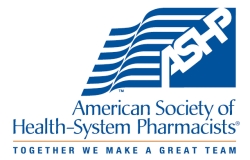Allied Health Education
AHE Program Entry Guidelines
General Requirements
- Minimum age: 18 years
- High school diploma or GED
- Take the Accuplacer test before entering program
- Ability to pass a nationwide criminal background check
- Ability to pass an illegal substance-drug screening
- Ability to meet immunization and program specified health requirements in compliance with the Centers for Disease Control guidelines
- Ability to perform laboratory skills and general clinical responsibilities with or
without reasonable accommodations, including:
- lift a minimum of 25 pounds and to reach overhead
- stand or walk for long periods
Recommendations
It is strongly recommended students be able to:
- read, write and compute at college level
- read, write and converse in English
- keyboard with a typing speed of 30 wpm (required to enter selected courses)
Students lacking this preparation should consult an advisor for appropriate remedial coursework to raise their skill level.
Accuplacer Exam
New SVC students are required to take the Accuplacer assessment for math and English placement unless they have previously been successful in attending college level courses. If the AHE program you selected has a math requirement, you may be required to complete the Accuplacer test process. The test is an un-timed, computerized, multiple choice, writing, reading and math proctored placement exam. The first test is free to new students. More information and dates/times/locations can be obtained by contacting the Counseling and Career Services Center, Mount Vernon Campus at 360.416.7697 (Whidbey Island Campus: 360.679.5319, San Juan Center: 360.378.3220, South Whidbey Center: 360.341.2324).
Computer Competence
Students are strongly advised to possess computer skills that include word-processing (30-40 wpm), file-saving and transfer, internet and e-mail use. Basic computer skills are required in the medical industry. Perspective employees lacking computer literacy may fail to complete program requirements or obtain a position in a healthcare field. Students who wish to improve their skills may benefit from successfully completing OFTEC 101, 103, or 105. Which course(s) you select will be dependent on your current level of keyboarding knowledge and skill.
Prerequisite Courses
Students should review schedules and course descriptions to check for prerequisites when planning their course of study. Please review the course information sheets for the specific prerequisites required in each program area. Prerequisites are in place to help students succeed in advanced classes. In prerequisite classes students will learn medical terminology, anatomy and physiology, CPR, HIV/AIDS, and HIPAA — all required information to successfully achieve the learning outcomes of advanced classes.
Background Check and Drug Screening
All students entering the AHE program must pass a multi-state, multi-zip code criminal background check as well as a drug/illegal substance screening. This requirement is based on medical industry standards and Washington State laws protecting vulnerable populations (RCW 43.43.880 and 43.43.842). Drug screens and background checks are required by clinical agencies where students complete their practicums. Students should be aware that certain gross misdemeanors and felonies may disqualify them from participating in practicum experiences and unable to complete their certificate or degree program. Future employment opportunities in the health care field may also be affected. Students will complete the background check and drug screening process when enrolled in AHE 100 (AHE 130 for Pharmacy students). Students who are unable to pass these screenings will be removed from the program.
Immunizations
Medical facilities require immunizations for all personnel who interface with patients. Students participating in practicum work experiences require the same immunizations. The immunization cost is the responsibility of the student. Immunizations must be completed before registering for certain courses or applying for a practicum. The following are required for participation in AHE programs where a practicum is an integral part of the curriculum:
- Negative TB test or chest X-ray (1 every 12 months)
- Tdap vaccine (within last 10 years)
- 2 MMR (measles/mumps/rubella) vaccinations or positive titer
- Hepatitis B vaccination (series of 3 immunizations)
Occupational Exposure
Students planning to enter any of the healthcare professions are advised that as a health care provider they are at risk for exposure to blood borne pathogens. Tasks and procedures performed by the healthcare professional involve risks classified by the Center for Disease Control in the following way:
- Category I – Direct contact with blood or other bodily fluids to which universal precautions apply.
- Category II – Activities performed without blood exposure but exposure may occur in emergencies.
- Category III – Task/activity does not entail predictable or unpredictable exposure to blood.
Health Self-Assessment of Skills and Abilities
While a physical examination is not required for admission into AHE courses, students must be physically capable of accurately and safely performing all tasks within the courses in order to meet the expectations of being employable within this profession. The student is responsible for self-assessing these abilities and characteristics and recognizing any limitations that may directly affect their ability to succeed in this program of study.
Supplies and Fees
- Most classes need the required textbooks, notebooks, pens, pencils, a clinical lab, and incidental supplies, etc. Supplies can run approximately $275 per quarter. Access to a computer with the Internet, word processing, spreadsheet software, and e-mail are necessary. Students can use SVC’s computer lab.
- The average cost of books is $400 per quarter. This is only an approximate cost and varies greatly by quarter and the particular AHE program option selected.
- Students enrolled in an AHE pathway which requires taking a practicum course will also be required to purchase an AHE medical “Scrubs” uniform (Medical Assistant, Pharmacy Tech, Phlebotomy). The AHE medical scrub uniform may only be purchased at the SVC Bookstore and must have the Skagit Valley College Allied Health Education patch on the sleeve (the patch is copyrighted).
- Fees are also charged for the required immunizations, criminal background check, drug screening, and Professional Liability Insurance.
- The registration fee for taking a culminating National Certification Exam is also the responsibility of the student.
